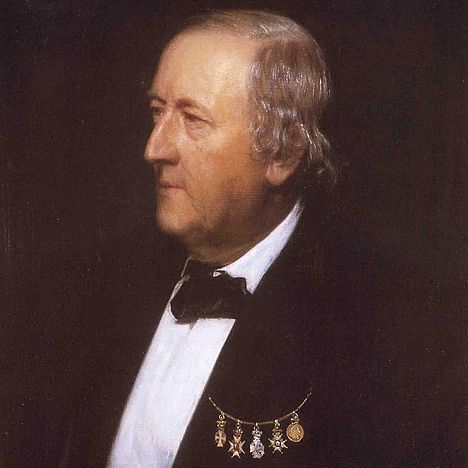
August Bournonville
The dancer, choreographer, teacher and ballet director August Bournonville (1805–1879) was the most influential Danish choreographer of the 19th century. He was trained in the French and Italian dance tradition by his father Antoine Bournonville and by Vincenzo Galeotti at the Royal Danish Ballet School and then went to Paris to study with Auguste Vestris. After engagements at the Opéra national de Paris and in London, he returned to the Royal Theatre in Copenhagen in 1829. In 1830 Bournonville became ballet director and continued to perform as a dancer with the company until his retirement from the stage in 1848. In addition to artistic residencies at the Vienna Court Opera (1855–1856) and three years at the Stockholm Opera (1861–1864), he spent the rest of his career in Copenhagen. He retired in 1877, having built the Royal Danish Ballet into one of the world’s leading companies. His numerous ballets formed the basis for a unique repertoire.
In his ballets, Bournonville drew on his own artistic and dancing qualities, combining bravura dance with expressive yet natural pantomime. He created his entirely own style, influenced by the romantic French ballet tradition: elegance and grace dominate in his ballets, as do precision, lightness and cheerfulness. Furthermore, he established a tradition of Danish male dance of highest virtuosity, which elevated the Royal Danish Ballet to an international level while giving it a unique national quality that remains a distinctive feature to this day. Thematically, Bournonville’s ballets are influenced by his experiences in Paris and the emerging romantic ballet. One of his first great successes was a version of La Sylphide (1836) with a new score by Herman Severin Løvenskjold. For ballets such as Napoli (1842), Bournonville drew inspiration from other cultures he encountered on his many travels. Pieces such as A Folk Tale (1854) show his interest in Nordic folklore and history. Bournonville created almost 50 ballets, some of which are still part of the repertoire of the Royal Danish Ballet.